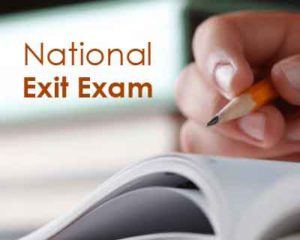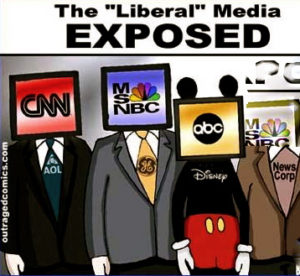 The Business Directory defines accountability as “The obligation of an individual or organization to account for its activities, accept responsibility for them, and to disclose the results in a transparent manner. It also includes the responsibility for money or other entrusted property.” As one of America’s preeminent businessmen, President Trump knows this intuitively. He is an educational reformer, a task made easier by the forlorn state of higher education today.
The Business Directory defines accountability as “The obligation of an individual or organization to account for its activities, accept responsibility for them, and to disclose the results in a transparent manner. It also includes the responsibility for money or other entrusted property.” As one of America’s preeminent businessmen, President Trump knows this intuitively. He is an educational reformer, a task made easier by the forlorn state of higher education today.
“Surely higher education would not object to a national college-exit exam as a requirement for receiving a bachelor’s degree,” says historian Victor Davis Hanson, who argues that the “Universities and the media” are the “Twin Pillars of Progressive Prejudice”—being “arrogant, ignorant, and ripe for reform.” For Hanson the exit exam, administered before awarding any degree, is taken-for-granted in professional programs where results really do matter, such as engineering, law, medicine, and the  like: “Call it a smaller version of the bar exam, or perhaps a reverse SAT or ACT test.” Who wants bridges and buildings to fall down, or physicians to be mere glad-handers and schmoozers? Who wants university professors to insidiously promote cheating as a way to cover up their own deficiencies?
like: “Call it a smaller version of the bar exam, or perhaps a reverse SAT or ACT test.” Who wants bridges and buildings to fall down, or physicians to be mere glad-handers and schmoozers? Who wants university professors to insidiously promote cheating as a way to cover up their own deficiencies?
Strange as it may seem, tests and exams are widely reviled in higher education. Professors and administrators believe that student beneficiaries of politically correct policies simply won’t pass in the long run. Measurement is too revealing, truthful, and honest. Colleges want the student loan money, without which professors won’t get paid. Trump would surely agree with Hanson that “Passing an exit exam would help ensure education consumers that tens of thousands of dollars in borrowed money, per student, at least led to quantifiable or demonstrable knowledge on a nationally shared basis, necessary for an informed, participatory citizenry.”
In short, students and parents are presently being ripped off. Student loan debt is now at $1 trillion, says Hanson: “The staggering sum drags down the economy, delaying marriage and child-bearing, discouraging young buyers’ home and car purchases, prolonging adolescence, and subsidizing mostly vacuous (and costly) ‘-studies’ courses that manage to impart little knowledge but lots of superciliousness.”
Similarly, it is likely that a good many university faculty may be not even be able to pass entrance exams to their own fields. Accountability is almost nonexistent. How many standing faculty at any level would be embarrassed if they were forced to take the SAT or ACT tomorrow? Sadly, such data should be one measure of assessing the health of our teaching profession in America.
 “Almost every aspect of American life has undergone restructuring. The university and the media are long, long overdue,” argues Hanson. Once venerable, both of these institutions are now corrupt, now purged of all but politically correct voices: “The New York or Washington, D.C., ‘senior correspondent’ of the mainstream print media is analogous to the disappearing tenured, full professor: a grandee whose position rests on the exploitation of nameless part-timers, whose worldview is increasingly politicized, who is not necessarily competent in his field, and who, in terms of cost-benefit analyses that are now applied to everyone else, simply does not provide society a service commensurate with his cost.”
“Almost every aspect of American life has undergone restructuring. The university and the media are long, long overdue,” argues Hanson. Once venerable, both of these institutions are now corrupt, now purged of all but politically correct voices: “The New York or Washington, D.C., ‘senior correspondent’ of the mainstream print media is analogous to the disappearing tenured, full professor: a grandee whose position rests on the exploitation of nameless part-timers, whose worldview is increasingly politicized, who is not necessarily competent in his field, and who, in terms of cost-benefit analyses that are now applied to everyone else, simply does not provide society a service commensurate with his cost.”
This might not matter if simple caveat emptor consumerism were at stake, rather than the very foundations of our existential well-being as humans and citizens. After all, most people innocently believe without question what the media tells them daily—and what teachers instill in classrooms. President Trump is our only hope for educational and media accountability—and much-needed reform.

